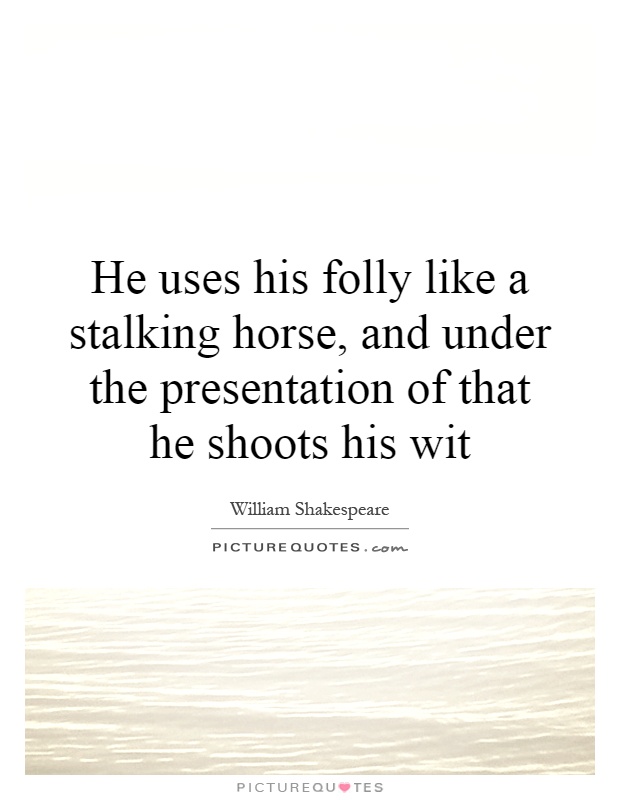He uses his folly like a stalking horse, and under the presentation of that he shoots his wit

He uses his folly like a stalking horse, and under the presentation of that he shoots his wit
In the world of William Shakespeare, deception and manipulation are common themes that run throughout many of his plays. One particular quote that exemplifies this idea is “He uses his folly like a stalking horse, and under the presentation of that he shoots his wit.” This line, spoken by Rosalind in the play As You Like It, highlights the idea of using foolishness as a disguise to conceal one’s true intentions.In the context of Shakespeare’s works, characters often employ cunning tactics to achieve their goals. By pretending to be foolish or naive, they are able to deceive others and manipulate situations to their advantage. This quote suggests that the character in question is using his apparent foolishness as a stalking horse, a decoy or distraction, to hide his true motives. By presenting himself as a fool, he is able to shoot his wit, or cleverness, without arousing suspicion.
This theme of deception and disguise is a recurring motif in Shakespeare’s plays. Characters like Iago in Othello and Richard III in the play of the same name use their cunning and deceitful nature to manipulate those around them. They use their folly as a mask to conceal their true intentions and further their own agendas.












 Friendship Quotes
Friendship Quotes Love Quotes
Love Quotes Life Quotes
Life Quotes Funny Quotes
Funny Quotes Motivational Quotes
Motivational Quotes Inspirational Quotes
Inspirational Quotes